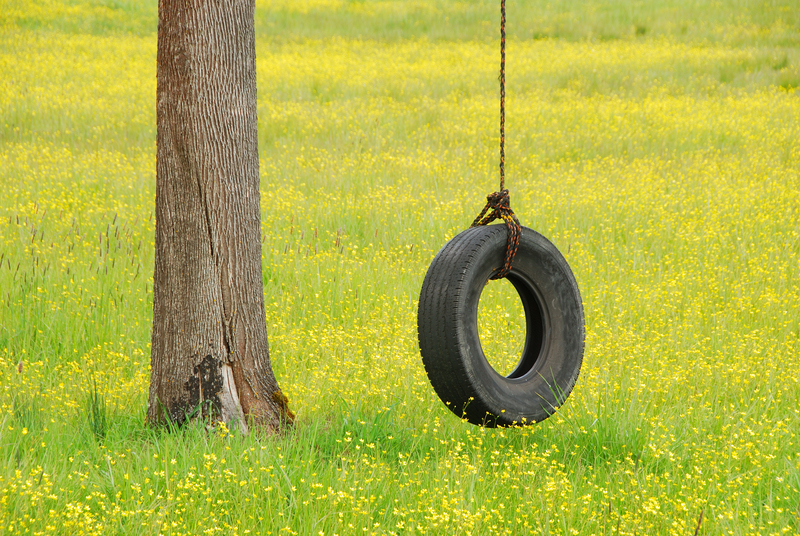Cost-Cutting Tips for Bulky Waste Item Pick-Up
Managing bulky waste items--such as old furniture, mattresses, large appliances, and renovation debris--can be a logistical and financial headache for homeowners and businesses alike. Bulky waste item pick-up services are essential for decluttering and maintaining a clean environment, but the associated costs often take people by surprise. Fortunately, with a bit of planning and research, you can significantly cut costs when disposing of large, unwanted items. This comprehensive guide provides actionable, SEO-friendly cost-cutting tips for bulky waste item pick-up to help you save money while being environmentally responsible.

Understanding Bulky Waste and Common Disposal Challenges
Before diving into the best strategies to save money, it's essential to understand what bulky waste items are and why their disposal presents unique challenges. Bulky waste typically refers to large items that do not fit in standard garbage bins or regular curbside collection services. These might include:
- Sofas and couches
- Beds and mattresses
- Large household appliances (refrigerators, washing machines, ovens, etc.)
- Dressers, cabinets, and tables
- Carpet rolls and building materials
- Garden waste (tree trunks, branches, etc.)
Disposing of these items can be costly and time-consuming due to:
- Special hauling requirements
- Landfill costs and regulations
- Heavy lifting and manual labor
- Environmental rules regarding recycling or hazardous components (e.g., refrigerants in fridges, treated wood)
Saving money on bulky waste removal starts with knowledge--know what you're throwing away, what services are available, and what rules apply in your area.
1. Explore Your Local Authority's Free or Discounted Pick-Up Services
Many municipalities provide some form of bulky item collection, either for free or at a reduced cost. Check your city or county waste management website to determine:
- How many free collections are available per year
- Limits on the number or types of items you can dispose of
- Scheduled pick-up dates and booking instructions
- Any charges for extra items or special disposal (e.g., for electronics or hazardous appliances)
Tip: Combining your pick-up with a neighbor's load can help both of you save money if there's a per-trip or per-load fee structure. Don't let your free annual collection quota go unused!
2. Bundle Multiple Bulky Items Together
Many private bulky waste removal companies charge by the load or weight, rather than per item. To maximize value:
- Gather all your bulky waste items and arrange pick-up once, rather than over multiple visits.
- Coordinate with neighbors, family, or friends to share disposal costs for a larger load.
- Break down items when possible to maximize load efficiency (e.g., disassemble furniture).
This cost-cutting tip for bulky waste pick-up ensures you get the most value out of each collection service trip.
3. Compare Private Bulky Waste Removal Companies
Don't settle for the first junk removal company you find. Prices vary widely for bulky item pick-up services, depending on:
- Item types (e.g., hazardous appliances often cost more)
- Volume and weight of items
- Distance from your location to the landfill or recycling center
Get at least three quotes from different companies. Ask for:
- Breakdown of costs (labor, transport, disposal fees)
- Inclusion or exclusion of heavy lifting services
- Discounts for repeat customers, seniors, or military
Some companies offer price-match guarantees or discounts for booking online--don't be afraid to negotiate!
4. DIY: Rent a Truck or Trailer and Handle the Pick-Up Yourself
If you have several large items and the ability to do the heavy lifting, renting a truck or trailer and transporting the waste to a landfill or recycling center yourself is a significant money-saver. Many communities allow direct drop-off at transfer stations for a fraction of professional removal costs.
- Check local landfill or recycling center fees--many facilities charge a set fee per ton or per item.
- Enlist help from friends or family to make the job quicker and safer.
- Disassemble large items to maximize the load per trip.
Note: Always check local regulations about transporting specific items--certain appliances or hazardous waste may have restrictions.
5. Sell or Donate Usable Items
One of the most underrated cost-saving strategies for bulky waste removal is to avoid disposal costs altogether by selling or donating still-usable items. Many people are surprised by the demand for secondhand furniture, appliances, and construction materials. Here's how to cash in or give back:
- Sell through local classifieds such as Craigslist, Facebook Marketplace, or OfferUp.
- Donate to charities or non-profits that accept furniture and appliances (Goodwill, Habitat for Humanity ReStore, Salvation Army, etc.).
- Arrange free curbside "pick-up" by posting "free" items online--often, someone is happy to haul away for you.
Not only do you possibly earn money or score a tax deduction, but you also keep items out of the landfill and support your community.
6. Take Advantage of Special Collection Events
Many cities and environmental organizations host annual bulky waste collection events where residents can dispose of large items at minimal or no cost. These events are usually publicized on local government websites, through mailers, or community centers.
- Commonly accepted items include furniture, mattresses, e-waste, large appliances, and yard waste.
- Some programs include free recycling or safe disposal for hazardous items such as electronics, paints, and chemicals.
- Arrive early--these events are popular and sometimes fill up fast.
Mark your calendar and plan your clean-up projects around these dates for maximum savings.
7. Upcycle or Repurpose Bulky Waste
One innovative way to avoid bulky item disposal costs is to creatively reuse or upcycle what you have. With a bit of imagination, you can transform:
- Old doors or pallets into shelving, garden beds, or furniture
- Discarded tires into swing sets or planters
- Broken appliances for parts or scrap metal
DIY projects extend the life of items and can often save you money on home improvement or garden projects.
8. Beware of Illegal Dumping--The Hidden Costs
It may be tempting to unload bulky items on the curb or in unauthorized areas to avoid fees, but illegal dumping can lead to hefty fines, legal trouble, and environmental harm. Most municipalities actively prosecute illegal disposal with penalties far exceeding the cost of legitimate pick-up services.
- Check your city's bylaws for proper disposal methods and penalties.
- Report illegal dump sites to keep your neighborhood clean and safe.
9. Arrange Bulk Pick-Up After Major Life Events
If you're moving, renovating, or clearing out an estate, timing your bulky waste pick-up can lead to significant cost savings. Clearing items all at once, rather than piecemeal, minimizes hauling costs and maximizes your free or discounted collections.
Coordinate with moving sales or donation pick-ups to streamline the process and ensure you don't pay for disposing of valuable items that can still be used or sold.
10. Join Community "Large Trash" Days or Clean-Up Groups
Many neighborhoods organize collaborative clean-up days where members coordinate large item disposal, sometimes qualifying for group discounts from waste removal companies. This collective approach also encourages recycling and environmental best practices.
- Ask your neighborhood association about upcoming clean-up events.
- Pool resources for renting dumpsters or paying for haulers.
11. Use Online Tools to Estimate Pick-Up Costs
Many waste management companies offer online calculators where you can estimate bulky item pick-up costs based on the type and quantity of items. These tools help you:
- Budget accurately for disposal fees
- Avoid surprise surcharges
- Compare options between companies quickly
Always read the fine print for additional costs such as stairs, long carry distances, or out-of-area service.
12. Separate Recyclables and Hazardous Waste
Sorting your bulky waste items can save money and protect the environment. Many landfills and collection services offer lower rates or free disposal for certain recyclables (like scrap metal, cardboard, or e-waste) and have strict rules about hazardous materials.
- Ask your local waste authority which items qualify for free or cheap recycling.
- Remove refrigerants and batteries from appliances where required.
Proper sorting reduces disposal costs and supports responsible recycling in your community.

Quick Bulky Waste Pick-Up Dos and Don'ts
- Do schedule your pick-up in advance to avoid rush charges.
- Do clear a path for easy removal to avoid extra labor fees.
- Don't mix hazardous waste with regular bulky items--follow local rules.
- Don't forget to check if your old items have recycling value!
Conclusion: Save Money and the Planet with Smart Bulky Waste Disposal
Reducing the cost of bulky waste item pick-up is possible with a combination of careful planning, responsible disposal methods, and a little creative thinking. Whether you're looking to save on furniture disposal, cut costs on large-item trash pick-up, or find the cheapest way to get rid of old appliances, using these cost-cutting tips for bulky waste pick-up will ensure you keep money in your pocket while helping the environment. Remember to always check local regulations, make use of free resources, and consider if your unwanted items could be a treasure for someone else before sending them off to the landfill.
With these comprehensive tips, you can confidently tackle your next bulky waste clean-out--efficiently, ethically, and economically.